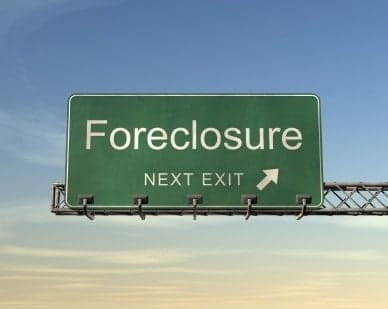
How Do I Get My Deposit Back If My Building’s In Foreclosure?
My partner and I live in a non-rent-controlled unit (built in 2002, a single unit in a large condominium complex) in San Francisco for two years. After the first year, our lease defaulted to a month-to-month tenancy. Several months ago, our landlord let us know that he was fighting foreclosure and attempting to have his mortgage restructured.
We have kept in touch with him since then, checking to make sure that he is still the owner and that we should, in fact, send our rent checks to him. He let us know prior to the first of July that he was definitely going to be foreclosed, and he was awaiting some kind of bankruptcy ruling “any day now”. He also let us know that he would be leaving the country for several months and that we should send our rent checks, addressed to him, to his relative’s address. He also instructed us to seek tenancy assistance or maintenance from his real estate broker, with whom we worked when we first moved into the unit.
I am worried that the ownership is going to change and we won’t be notified. Should we just keep paying rent to the landlord, even though it seems like the fate of our unit is in limbo? What rights do we have as tenants? Also, how on earth are we going to get our security deposit back?
This is a confusing issue for tenants. No doubt you’ve heard stories about tenants who continue to pay rent to a defaulting landlord only to be socked with a three-day notice to pay or quit from the bank who took over six months ago.
You won’t necessarily be noticed about a change of ownership when a property is foreclosed, but that doesn’t mean you can’t find out. Notices of default and foreclosure sales are a matter of public record.
In San Francisco you can check property records online at the Assessor-Recorder’s website. Property records are now managed by CRiis.com. There is no input on the site for addresses so I suggest you get the APN (Assessor’s Parcel Number, comprising the lot and block numbers) from the SF Assessor-Recorder’s website.You can check the status of the unit from time to time. You should also know that the there is a backlog inputting the latest information. If you think you need up-to-date records , you should probably visit the Assessor Recorder’s office at City Hall.
Absent evidence that the landlord is not the owner of the property, keep paying your rent to him. Get receipts and/or send the rent via certified mail. Lately I’ve been hearing from tenants who stop paying rent when they find out the landlord has defaulted. They don’t pay after service of a three-day notice and find themselves in a losing unlawful detainer lawsuit.
Your rights without rent control are diminished significantly, but you do have Rent Ordinance §37.9D. Essentially the ordinance provides that you cannot be evicted by person or entity who took title through foreclosure, except by one of the 15 “just causes” of the Rent Ordinance. It also requires the person or entity who took title to notify tenants of that fact within 15 days.
The banks and owners will all tell you that your security deposit is, poof, gone, up in smoke. Not true. California Civil Code §1950.5 is clear on this point. I should say clear for lawyers. It’s actually pretty convoluted.
Essentially Civil Code §1950.5(h) provides a process by which the landlord either transfers the security deposit to the new owner or returns the deposit minus any deductions to the tenant. If that doesn’t occur, and it never does in a foreclosure, Civil Code §1950.5(j) is clear: “In the event of noncompliance with subdivision (h), the landlord’s successors in interest shall be jointly and severally liable with the landlord for repayment of the security[…]” You may have to sue both the landlord and the bank, but the bank is on the hook.
So, if you check the property records on a regular basis and continue to communicate with the landlord’s agent, you should be fine for awhile. Frankly, if I was in your situation, I’d start looking for a new, rent-controlled, unit.
For a more comprehensive evaluation, go to the San Francisco Tenants Union.

